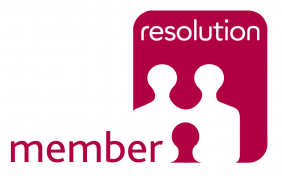What are the advantages of mediation in resolving family disputes?
When a relationship has come to an end, the prospect of divorce or separation can be emotionally and financially challenging. With spiralling cost of living, many families are staying together longer than they wish to because the cost of a divorce, the associated financial negotiations and child arrangements discussions represent an added expense that feels unachievable.
The worrying feature of extending a relationship beyond its natural end point is that tensions start to rise and hostilities in the home can become an issue. If separation is inevitable then it is likely going to be kinder to you, to your family and to your future selves to make the move as soon as possible. Delaying is only likely to inflame emotions.
What is most important for separating families is doing so kindly, considerately, taking the needs of the family into account and keeping a tight control on your legal costs for effecting this change.
There are alternative approaches to separation that emphasise empathy and cooperation. Mediation and collaborative law provide avenues for resolving disputes with dignity and respect. In this article, Susi Gillespie, Head of Family Alternative Dispute Resolution, explores why these approaches are worth considering and how they can lead to more positive outcomes.
Preservation of relationships
Family law mediation and collaborative law offer alternative dispute resolution methods that prioritise cooperation over confrontation. These methods offer numerous benefits compared to the traditional contentious approach of spouses (or partners) conducting negotiations separately via their solicitors or indeed, issuing court proceedings.
One of the key advantages of using mediation or collaborative law is the preservation of the relationship. In solicitor correspondence or in court-based applications, parties are pitched against one another, and emotions inevitably run high. These approaches can place an enormous strain on the family unit – palpable for many years to come. The negative feelings invoked by litigation (particularly if matters proceed all the way to a final hearing where cross examination is involved), can be irreversible.
With the help of a solicitor mediator, mediation clients can communicate openly and are given the tools, information and guidance to work together to find mutually agreeable solutions. This approach automatically fosters a more amicable atmosphere. Studies have shown that families that have reached agreements using mediation and who have retained control of the process and the outcome, report a higher satisfaction with the process and have maintained better post-divorce relationships.
Cost-effectiveness
Furthermore, mediation and collaborative law are much more cost-effective than going to court. Litigation is fast paced, high risk, high conflict and involves substantial legal fees, court costs, and lengthy, often drawn out, proceedings. The current time frame is around 15-18 months (sometimes longer) for a resolution of a financial application. Contrast this to mediation or collaborative law where the clients set the pace and agree the dates for their meetings. Clients can move as quickly or as slowly as they wish. Moreover, because the couple are in the room together, there are no correspondence delays – discussions, negotiations and proposals/agreements are made there and then – in the meetings.
When court proceedings are issued clients often believe this to be the answer to the conundrum of how to share their assets. Sometimes, proceedings are unavoidable. However, in many cases, the couple simply passes control of their future to a judge in circumstances when they could have compromised and reached an outcome they are both fairly content with. When a judge is required to make an order, they have the unenviable task of deciding what is fair for a couple that cannot decide this for themselves. Most often, both parties will be disappointed with the judge’s order. There are no winners in family separation and many judges expect both parties to be disappointed with the outcome for it to be ‘fair’ to both.
Ownership of the process
Mediation and collaborative law empower couples with the tools to actively participate in creating their own solutions tailored to their unique needs. By fostering a collaborative mindset, these methods allow parties to assert their needs and preferences, leading to outcomes that feel fair and equitable to all involved.
Impact on children
It goes without saying that children of parents warring in court will be affected directly or indirectly by the process, the outcome and the aftermath. Studies show that children of families that mediated or collaborated on their financial and or child arrangements outcome, show far better long-term adjustment than those exposed to adversarial litigation.
Mediation and collaborative law actively enable parents to work through co-parenting approaches and techniques. Parents work together to mitigate the negative impact of their separation on their children. Some mediating or collaborative couples decide in their first meeting how to communicate their decision to separate to their children who don’t yet know about their life changing decision. These processes are designed to equip and benefit the family from the commencement of a decision to separate to the conclusion of a jointly agreed outcome.
Confidentiality and support
Privacy is crucial when addressing sensitive family matters. Both mediation and collaborative law proceedings offer confidentiality, creating a safe space for open dialogue and negotiation. Each party will sign documentation at the outset confirming their commitment to this and the process.
Additionally, couples can enlist the support of professionals, such as financial advisors, pension experts or therapists, ensuring they have access to the resources and guidance needed to navigate the process effectively.
Family law mediation and collaborative law offer a wealth of benefits – from preserving relationships and reducing costs to empowering individuals and prioritising the needs and well-being of the children of the family.
If you’re facing family issues and seeking a compassionate resolution, contact Susi Gillespie or another member of our family law team on 020 3993 2668 or email [email protected].














